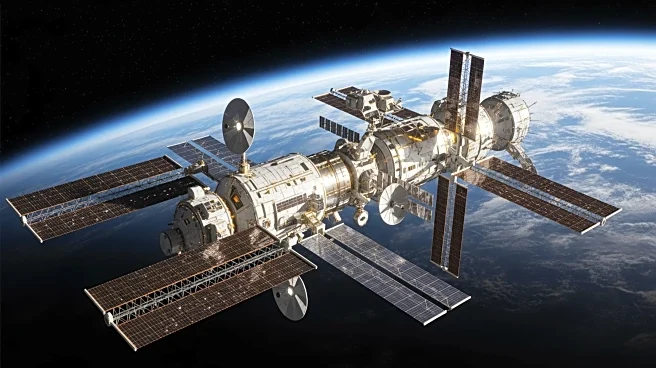What's Happening?
The International Space Station (ISS), which has hosted a continuous human presence in space since November 2, 2000, is facing plans for deorbiting by the end of the decade. The ISS, initially launched
with only three pressurized modules, has grown significantly over the years, accommodating up to seven crew members. However, aging infrastructure, such as the Zvezda module leaking air, has led NASA and its partners to plan for its controlled destruction in the Pacific Ocean. The ISS has been a critical platform for international cooperation and scientific research, but its operational challenges and the need for maintenance have prompted discussions about its future.
Why It's Important?
The deorbiting of the ISS marks a significant shift in space exploration, as it has been a symbol of international collaboration and scientific advancement. Its retirement could impact ongoing research and the development of new technologies. The transition to commercial space stations, as planned by NASA, may alter the dynamics of space exploration, potentially reducing the permanent human presence in orbit. This change could affect industries reliant on space-based research and development, and shift focus to shorter missions rather than long-term habitation.
What's Next?
NASA plans to replace the ISS with commercial space stations, although timelines have been delayed. The agency has adjusted its requirements from permanent crews to month-long visits, indicating a shift in operational strategy. The deorbiting process will involve a modified Dragon spacecraft from SpaceX to ensure a controlled descent. The future of human presence in space will depend on the successful transition to commercial platforms and the development of new technologies to support long-term missions.
Beyond the Headlines
The decision to deorbit the ISS raises questions about the sustainability of long-term human habitation in space. The challenges faced by the ISS, such as storage and maintenance, highlight the need for innovative solutions in future space stations. The potential reduction in permanent human presence could impact international cooperation and the development of space policies. The shift towards commercial stations may also influence the ethical considerations of space exploration, including the management of space debris and the preservation of space environments.









